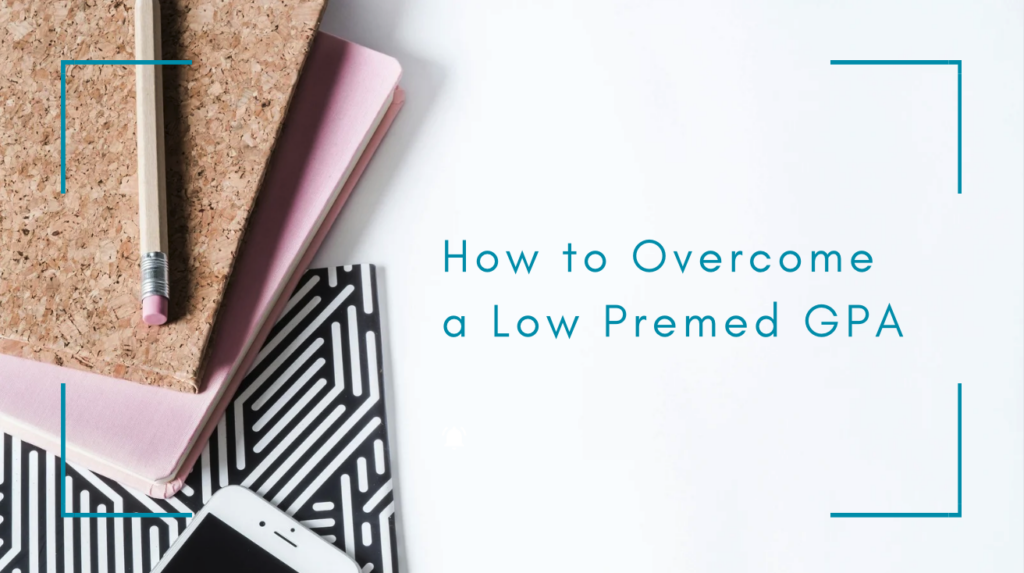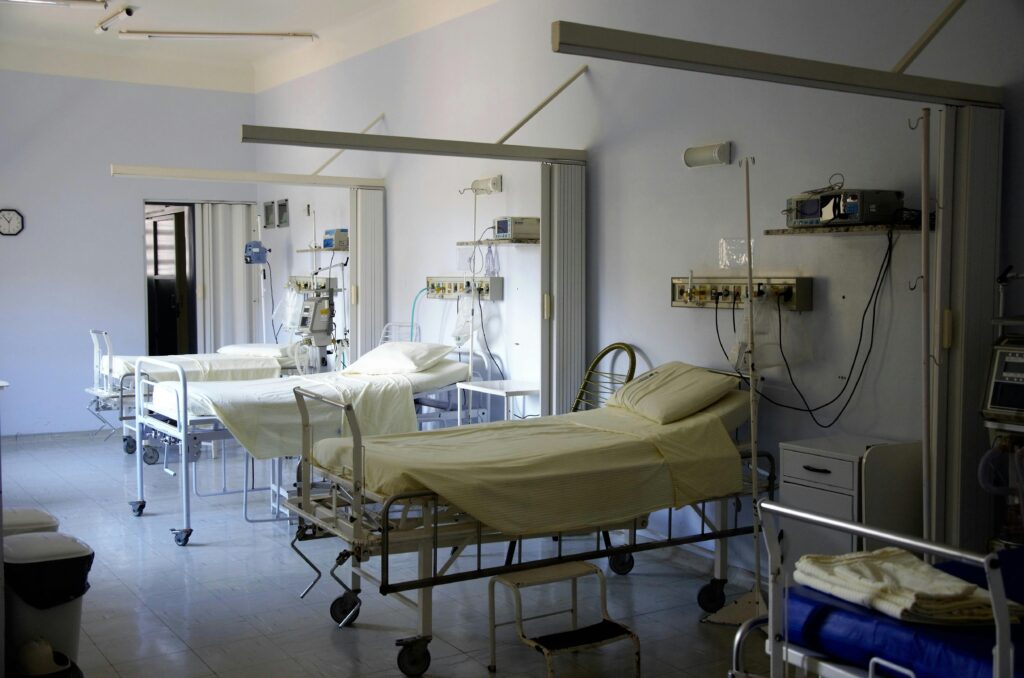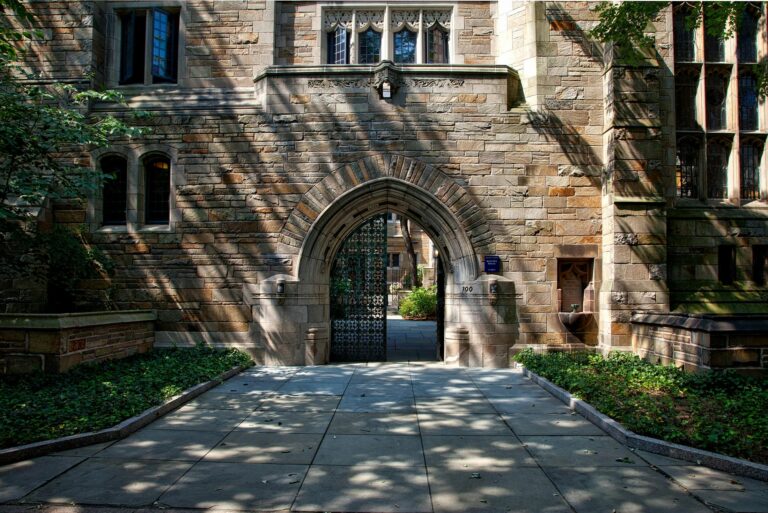Getting into Canadian or American medical schools can feel like a daunting challenge, especially if you have a low premed GPA. Whether you struggled in a few college courses, were in a very difficult program, or had personal struggles, a low premed GPA seems like an obstacle often impossible to overcome.
As a medical student now, I know many students with lower GPAs who got accepted into medical school. Today, many medical schools to attempt to assess applicants holistically and consider a range of factors such as extracurricular activities, personal experiences, letters of reference, and the quality of your application materials once you pass initial academic screening cut-offs.
Here, we’ll explore strategies and tips for overcoming a low GPA and strengthening your candidacy for medical schools, and how to enhance your application and improve your chances of acceptance, despite a lower GPA.
Follow our comprehensive guide to creating a strong medical school application that highlights your strengths and maximizes your chances of acceptance.

How Much Does GPA Matter for Medical School?
The first step is understanding how medical schools evaluate applicants. Most schools use a combination of academic metrics, like GPA and MCAT scores, alongside non-academic factors. Each school’s admissions process is unique, so researching individual requirements and processes is crucial.
A high GPA demonstrates a student’s academic foundation and an ability to succeed through rigorous coursework and schedule of medical school. This is the reason why medical schools want students with high GPAs.
However, many medical schools today use a holistic admissions process, meaning they evaluate the entirety of your application. While a competitive Canadian medical school GPA still hovers around 3.8 to 4.0, a low GPA doesn’t automatically disqualify you. Your GPA is just one part of your story that makes you a qualified applicant.
Pass the GPA Screening Cut-Offs
In Canada, GPA is typically used as a “screening tool”. Your GPA needs to be high enough to pass onto the next stage of the application, where an admissions committee will evaluate the remainder of your application, including your extracurriculars, essays, and reference letters. This cut-off is hidden and may also differ year to year based on the competitiveness of the applicant pool.
For instance, a medical school may require a minimum cumulative GPA of 3.5 to apply. However, if the mean GPA of applicants is 3.85, then all applicants with 3.84 and under may be automatically rejected before evaluation of their autobiographical sketch, essays, or reference letters.
While factors like your MCAT score, clinical experience, research, extracurricular activities, and personal statement are important, they come into play more significantly after you’ve passed the initial GPA screening.
Ultimately, ONE part of your application can be weaker without significantly hurting your chances. Many students have one weaker aspect of their application, and these students ultimately still receive acceptances.
Key Academic Considerations for GPA
Last 2 Years or Best-Year GPA: Some institutions may consider your most recent or best academic years rather than your cumulative GPA. Strong performance in later years can give you the GPA you need to apply and be a competitive applicant.
Prerequisite Courses: Ensure you meet the minimum grade requirements for prerequisite courses. If your GPA in prerequisite courses is strong, this can sometimes offset a lower overall GPA if a program values grades in certain courses more heavily.
MCAT Scores: A high MCAT score can help balance out a lower GPA, especially with a holistic review process.
Check out our guide on the MCAT, including tips for acing the Chemistry & Physics, CARS, Biology & Biochemistry, and Psychology & Sociology sections.
Reflect on Your Academic Journey
Take a moment to assess why your GPA is lower than you’d like. Were there specific challenges, such as personal difficulties, health issues, or adjustment struggles during your undergraduate years? Understanding the root causes of your academic performance can help you craft a compelling narrative in your personal statements to address these issues in your application.
Strategies to Make Your Application Stand Out
Highlight the Academic Comeback Story
Show evidence of growth and improvement in your academic record. Admissions committees value candidates who demonstrate perseverance and the ability to overcome adversity.
Draft a Transparent Personal Statement
Use your personal statement to explain dips in your GPA thoughtfully and maturely. Focus on what you learned from these experiences and how they made you a stronger, more empathetic future physician.
Strengthen Your Academic Profile
If your GPA is a concern, there are proactive steps you can take to bolster your academic profile:
1. Post-Baccalaureate or Special Master’s Programs
Completing additional coursework after your undergraduate degree can showcase your academic capabilities. Many Canadian universities offer post-baccalaureate or graduate programs designed to help students improve their academic standing. Excelling in these programs can demonstrate that you’re capable of handling the rigors of medical school. I know of a number of students who did post-bacc or master’s degrees who subsequently were accepted into medical school afterwards. Sometimes an additional 1-2 years of specialized education make a significant impact on your overall application.
2. Retake Courses
If feasible, retaking courses in which you performed poorly can improve your GPA and show your commitment to academic excellence. This is particularly beneficial for prerequisite courses where a strong foundation is essential.
3. Excelling in Research
Engaging in research projects can not only strengthen your application but also demonstrate your intellectual curiosity and dedication to advancing medical knowledge. Publishable research or conference presentations can offset a lower GPA by showcasing your abilities outside the classroom.
Summer research programs and awards provide an excellent opportunity to gain practical experience in a focused setting. Look into formal 8-10 week programs that culminate in a presentation or publication. Notable examples include SickKids’ Summer Research (SSuRe) program, University of Toronto’s Summer Undergraduate Research Program (SURP), Sunnybrook Hospital’s SRI Summer Student Research Program, among others.
Unsure of how to find the right research opportunities? Check out our guide here.

Leverage Non-Academic Strengths
Medical schools in Canada place significant emphasis on non-academic qualities. Use this to your advantage by highlighting your unique experiences, skills, and attributes.
1. Exceptional Extracurricular Activities
Volunteer work, especially in healthcare-related settings, is highly valued. Consistent, long-term commitments show dedication and reliability. Leadership roles in clubs, organizations, or community initiatives demonstrate your ability to inspire and guide others. Unique hobbies or achievements (e.g., athletics, music, art) can make your application stand out and give insight into your personality.
Check out our guide on choosing premed extracurriculars that will help make your medical school application stand out.
2. Clinical Experience
Hands-on exposure to the medical field is crucial. Shadowing physicians, working as a medical scribe, or obtaining certification as a healthcare assistant can show admissions committees that you’re serious about pursuing a medical career.

3. Compelling Letters of Reference
Strong letters from mentors, professors, or supervisors can vouch for your character, work ethic, and suitability for medical school. Choose referees who know you well and can speak to your unique qualities.
4. Personal Statement and Essays
Your personal statement is your chance to share your story and express your passion for medicine. A compelling, well-crafted essay can highlight your motivation, resilience, and suitability for the profession, even if your GPA isn’t perfect. Many applicants with strong stats miss out on acceptances due to weak writing. Take the time to craft a clear, engaging, and impactful personal statement to maximize your chances.
Apply Strategically
Choosing where and how to apply can significantly impact your chances of acceptance. Research the admissions requirements and selection criteria of each medical school carefully to identify programs where you’re most likely to succeed, such as those that view applications holistically or those provide special applicant pathways.
Considerations for Low-GPA Applicants
Schools That Value Holistic Review: Some schools place greater emphasis on non-academic factors, giving applicants with lower GPAs a fairer chance.
Special Pathways: Explore programs for non-traditional applicants or those aimed at addressing physician shortages in underserved communities.
Regional Advantages: Many Canadian medical schools prioritize in-province applicants. Ensure you understand these preferences when selecting where to apply as you may have an advantage in certain programs or geographical locations.
Some students perform well enough on the CASPer to meaningfully enhance their overall medical school application. Check out our guide on the most effective strategies for the CASPer test to provide clear and thoughtful responses to score in the top quartile.
Nail the Interview
If you make it to the interview stage, you’ve already overcome significant hurdles. The interview is your chance to showcase your personality, communication skills, and passion for medicine.
In many programs, your pre-interview stats may not matter at all anymore once you reach this stage, so make sure to prepare, practice, and ace your interview.
Tips for Success
Practice common interview questions and scenarios, including those based on ethics, communication, and problem-solving.
Be authentic. Share your journey honestly and confidently, emphasizing how your experiences have prepared you for a career in medicine.
Seek regular feedback from mentors or peers to improve your performance.
Alternative Pathways to a Career in Medicine
If you’re unable to secure admission on your first try, don’t lose hope. Many successful physicians took alternative routes to achieve their goals.
1. Apply to International Medical Schools
Consider applying to reputable international medical schools, such as in Canada/USA, Europe, or Australia. Graduates of these international programs tend to have good match rates, allowing you to train abroad but return to your home country with relative ease to continue training during residency.
2. Pursue a Graduate Degree
Pursue a master’s or PhD program in a related field and apply as a graduate student. Strong performance in graduate studies can make you a more competitive candidate. I know many colleagues who got accepted broadly into medical schools across the country after having completed a master’s program. A graduate degree may be the small extra boost you needed all along!
3. Reflect on Other Healthcare Career Options
Perhaps along the process, you may realize that your passion for medicine is dwindling, or you find an interesting new career path. Follow your gut and consider other options as there are countless alternative healthcare careers that high-paying, flexible, and deeply rewarding.
Unsure about medicine? Explore alternative healthcare careers that offer rewarding work, competitive salaries, and flexible lifestyle options.

Final Thoughts
A low GPA does not define your potential to become a great physician. Admissions committees are looking for candidates who are resilient, motivated, and capable of learning from their experiences. Focus on developing a growth mindset, where challenges are viewed as opportunities to improve and grow. This mindset will not only help you navigate the admissions process but also prepare you for the lifelong learning required in medicine.
While a low premed GPA can feel like a significant obstacle, it is by no means insurmountable. By taking proactive steps to strengthen your academic record, leveraging your unique experiences, and applying strategically, you can improve your chances of gaining admission to medical school.
Remember, persistence, self-reflection, and determination are key. Each step you take toward your goal brings you closer to realizing your dream of becoming a physician.
Don’t quit and continue to persevere!








